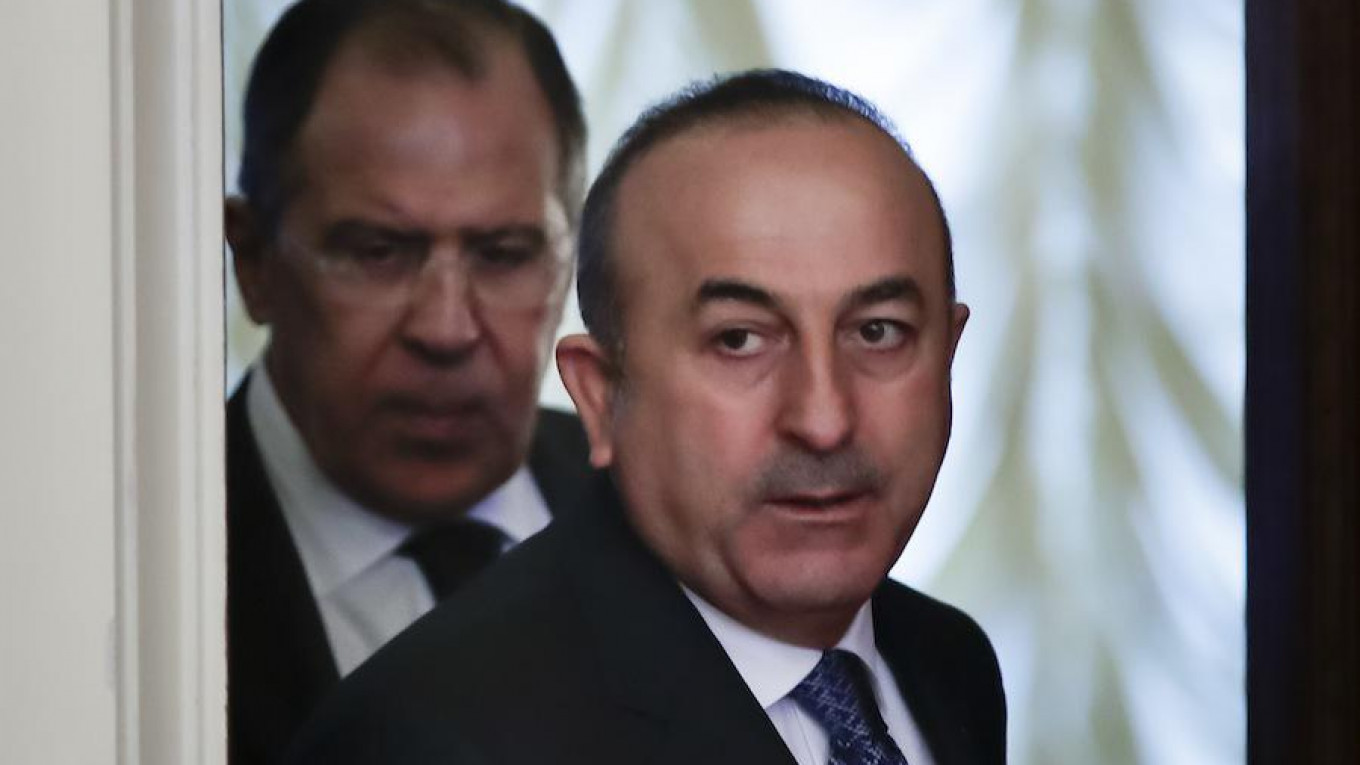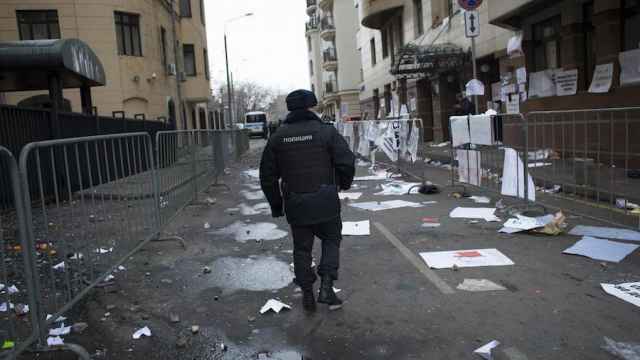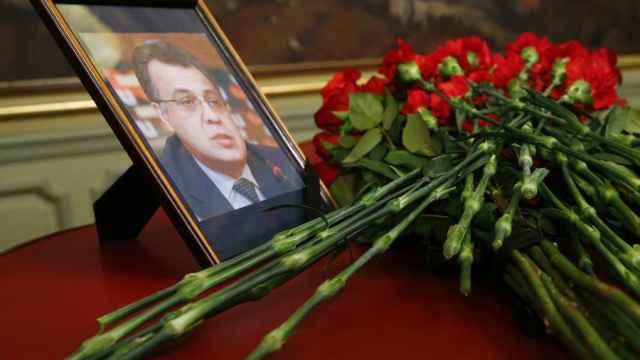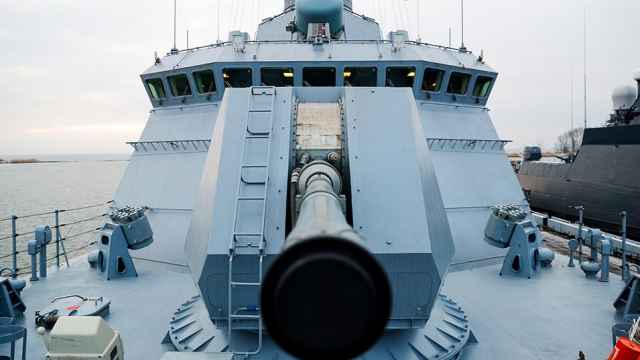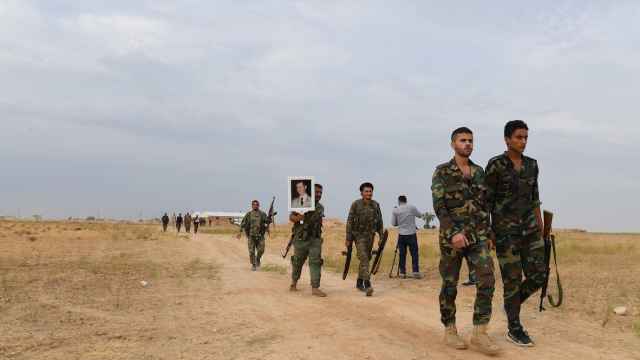The gruesome assassination of Andrei Karlov, Russia’s ambassador to Turkey, will make Moscow and Ankara close ranks and intensify their cooperation to end the war in Syria. Both countries, each in its own way, have underestimated the terrorist threat which comes from their military involvement in the conflict.
Moscow has failed spectacularly to predict a major terrorist attack, or take the necessary precautions which could have prevented it.
It is the second such failure since September 2015, when the Kremlin failed to cancel air travel and evacuate Russian tourists from Egypt before it launched its airstrikes in Syria.
The Russia's Foreign Ministry, and Foreign Intelligence Service (SVR) — which is responsible for diplomatic security — shoulder most of the blame.
The fact that the assassin served with the Turkish police detail protecting the Russian Embassy shows poor tradecraft by the Russian intelligence operatives and the sad state of their “partnership” with the Turkish security services.
Unlike the United States, where Congress conducted its own, independent investigation of the killing of the US Ambassador to Libya in Benghazi, there will be no parliamentary inquiry in Russia.
Read more from The Moscow Times: Former Russian Diplomat Says Embassy Staff Are 'Almost Defenseless'
Moscow also needs to ask itself whether its brutal military tactics are helping Russia to protect itself against terrorism, or actually encouraging terror attacks against Russian targets worldwide.
A better strategy for the Kremlin would have put more emphasis on deterrence and protecting civilians from ISIS and the regime’s brutality, casting Russia’s role in Syria in an entirely different light: as a peacemaker and a trusted intermediary.
Instead Putin has chosen to use brute force against Bashar Assad’s opponents, and ally itself fully with Iranian Shia against mostly Sunni Syrian rebels.
Turkey, for its part, has resisted Russian proposals to use armed guards from the SVR’s diplomatic security detachment for several years. It has been shown as weak, disorganized, and unable as a host country to provide for security of foreign envoys in its own capital.
As Dimitar Bechev of the University of North Carolina notes, Ankara’s “...dual strategy of cutting deals with Russia while allowing a popular outpouring of indignation over Syria (such as the regular protests outside the Russian Consulate in Istanbul and the recent rally in solidarity with the people of Aleppo) appears to have backfired, in the most literal sense.”
Turkey will now have to go an extra mile to accommodate Russia in Syria and Moscow will use this leverage to its advantage.
Read more from The Moscow Times: Russia’s Foreign Ministry Claims Assassinated Ambassador Contacted Syrian Opposition
This was already visible in Moscow on Tuesday when foreign and defense ministers from Russia, Turkey and Iran met for talks on ending the war. Ankara appears to have endorsed Moscow’s proposal for a completely separate, Dayton-style, negotiating format, detached from the U.S.-Russia led UN process.
The proposal envisions a ceasefire agreement between the Syrian regime and the opposition, which could be finalized at a meeting in Astana on Dec. 27. Russia, Turkey and Iran have pledged to serve as guarantors of the agreement and facilitators of the political settlement.
The move appears to completely sideline the United States (Lavrov vaguely briefed Kerry in a phone call), Saudi Arabia and Qatar, as well as the Saudi-backed High Negotiating Committee, which representing major Syrian armed opposition groups.
It is unclear with whom the Syrian regime is negotiating, but they most likely comprise of the Syrian opposition groups that Russia and Egypt unsuccessfully gathered in Moscow, Astana and Cairo in 2014-2015.
The key issue is whether Turkey will be able to deliver some of the Free Syrian Army groups it sends to fight ISIS and Kurds in Northern Syria to the same table.
Since both Russian Defense Minister Sergei Shoigu and Russian Foreign Minister Sergei Lavrov have lauded Turkey for separating “moderate opposition forces” from “terrorists” in Eastern Aleppo, it appears that Turkey will be able to deliver at least some Syrian armed groups to the talks in Astana.
The talks in Astana will not set Assad’s departure as a precondition for a peaceful settlement. But it is likely that the new agreement will borrow heavily from the UN's resolution to describe the path forward on political transition, the new Syrian constitution (Moscow has a draft ready) and the timeframe for new elections.
This is a daring and forceful move by Moscow that, if successful, will secure Russia’s role as the new kingmaker in the Middle East, displacing the United States as the region’s indispensable power.
This is partly why the deal is being rushed through before inauguration of U.S. President-elect Donald Trump: but the move might ultimately by welcomed by the incoming administration. It provides a way for Washington to extricate themselves from Syria, as Trump has previously promised.
Moscow's sense of urgency also reflects Russia’s desire to end the Syrian war on favorable terms, avoiding any risk that the conflict could impact Russia’s presidential race a year from now. Whether this shift to active peacemaking will help diminish the Sunni terrorist threat to Russia remains to be seen.
A Message from The Moscow Times:
Dear readers,
We are facing unprecedented challenges. Russia's Prosecutor General's Office has designated The Moscow Times as an "undesirable" organization, criminalizing our work and putting our staff at risk of prosecution. This follows our earlier unjust labeling as a "foreign agent."
These actions are direct attempts to silence independent journalism in Russia. The authorities claim our work "discredits the decisions of the Russian leadership." We see things differently: we strive to provide accurate, unbiased reporting on Russia.
We, the journalists of The Moscow Times, refuse to be silenced. But to continue our work, we need your help.
Your support, no matter how small, makes a world of difference. If you can, please support us monthly starting from just $2. It's quick to set up, and every contribution makes a significant impact.
By supporting The Moscow Times, you're defending open, independent journalism in the face of repression. Thank you for standing with us.
Remind me later.



